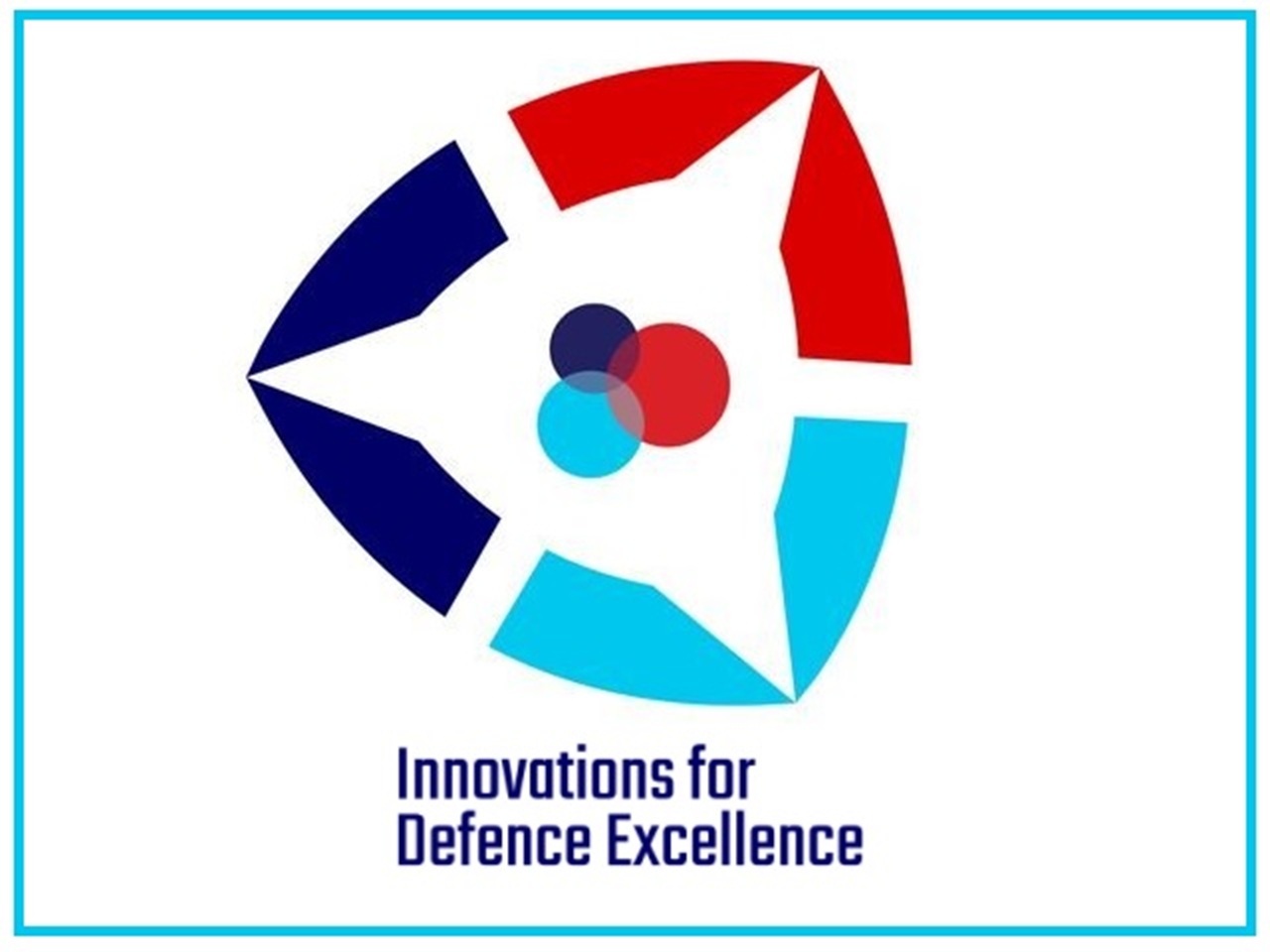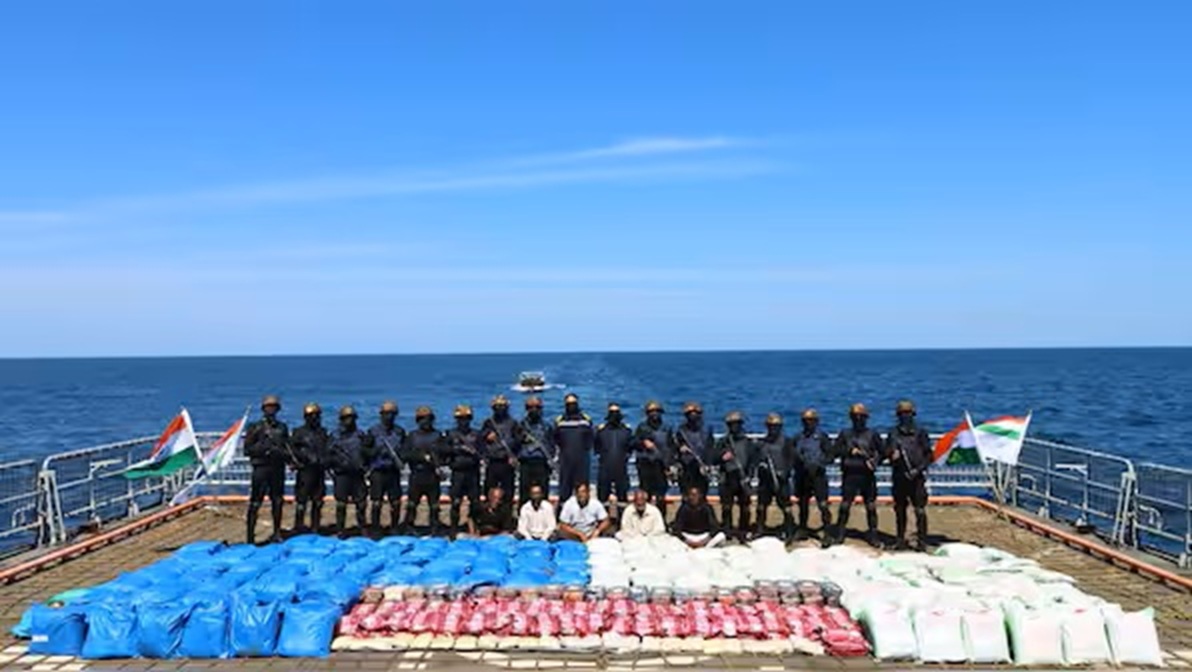Launched by the Indian Ministry of Defence, iDEX is a flagship program created to foster innovation and technological self-reliance in the defence and aerospace sectors. iDeEX can create an ecosystem that engages startups, micro, small, and medium enterprises (MSMEs), individual innovators, research and development (R&D) institutes and academia.
Introduction
In this complex, multi-dependent world, each nation depends on others for resources, energy and Technology. The world has advanced technologies, where nations are trying to develop cutting-edge technologies for their use or to sell to other states. India is one of the largest importers of defence items in the world; in 2023, India imported 9.8% of global arms imports. To boost India’s manufacturing sector and reduce India’s dependency on other nations for the need of goods and services, in 2014, Prime Minister Modi launched the ‘Make in India’ Initiative. It helps India in achieving self-reliance in technology, new job opportunities and an increase in Foreign Direct Investment (FDI), which will help increase India’s exports.
India’s Journey of Self-Reliance
India’s self-capability in making defence equipment has developed in different phases. Laksham Beharna, in his book “INDIAN DEFENCE INDUSTRY: An Agenda for Making in India”, mentioned India’s Defence Industrialisation Phase. The journey of self-reliance in India took 47 years, and India has gone through five phases of Defence Industrialisation. These phases have evolved from the quest for self-sufficiency to self–reliance, through Coproduction, private sector participation, and the Make in India Initiative (Kumar Behera, 2016). To boost the Make in India Initiative, the Indian PM has put an Import embargo on 101 Defence items to support the Indian defence ecosystem (MoD’s Big Push to Atmanirbhar Bharat Initiative, n.d.).
In India, the contribution of the private defence sector is low, which is due to various factors, from trust in private players to product Quality. Also, there is a lack of defence infrastructure and an ecosystem for purchasing defence items. Although there is some contribution from private players in the defence sector, which is made by renowned companies, Private Players do not contribute to critical Technologies. Solving this issue also boosts the startup and private defence ecosystem iDEX-DIO, which was formed.
About iDEX-DIO
iDEX-DIO consists of two different identities, iDEX and DIO. iDEX stands for Innovation for Defence Excellence, and DIO stands for Defence Innovation Organisation. DIO is a nonprofit Section 8 company formed by two Defence Public Sector Undertakings, Hindustan Aeronautics Limited (HAL) and Bharat Electronics Limited (BEL). DIO act as the implementation arm of iDEX. On April 12, 2018, India’s Prime Minister Narendra Modi launched an iDEX during DefExpo 2018 in Chennai(FAQ, n.d.).
India is not the first country to propose developing a defence ecosystem by boosting the private sector. The United States and Israel were the first to introduce grand and technological support to private players in the defence sector. The role of iDEX and the participation of private players in defence manufacturing have increased with the DAP Amendment 2020. By introducing the amendment 2020, which makes the journey of research and development in the defence sector easy for private entities. The iDEX supports private identities in various steps from innovation to the indigenisation of products. iDEX support of a grant to the winner is based on milestone achievements, which means that upon achieving a certain development milestone, a grant will be released for the winner. To provide technology assistance and funds support, IIT has developed an Innovation hub that has a tie-up with iDEX(Innovations for Defence Excellence, n.d.).
While looking at the journey of the iDEX in such a short time, iDEX has interacted with hundreds of opportunities for start-ups. Till now, iDEX has launched 544 challenges, which include challenges from DISC, SPARK and ADITI. For these 544 challenges, 95000 applicants have applied, out of which 1300 applicants are shortlisted. A total of 601 applicants were chosen as winners for these challenges, and more than 410 crores of Grant was approved for these challenges. These 601 winners are evaluated in various stages. The evaluation agency has included 24 nodal agencies(iDEX – Home, n.d.).
iDEX Schemes help Private Identities
iDEX has launched various innovation challenges that help start-ups, innovators and MSMEs to support the defence ecosystem. Categorisations of these innovation challenges and grants under them are based on the requirements of departments. iDEX provides Grants up to Rs 1.5 Crore under the Defence India Start-up Challenges (DISC) Scheme to start-ups, Innovators and MSMEs. Till now, iDEX has launched a total of 13 editions of DISC challenges. The DISC challenge was first inaugurated on August 08, 2018, by then-Defence Minister Nirmala Sitharaman in Bengaluru (DISC 1, August 04, 20218). The iDEX PRIME Platform for Regional Innovations and Manufacturing Ecosystems scheme has a grant amount of Rs 10 crore. The first edition of the iDEX PRIME scheme was launched on April 11, 2022, during the DefConnect 2.0 event in New Delhi. The iDEX PRIME scheme has various editions, such as iDEX Prime, iDEX Prime SPRINT, iDEX PRIME SPACE, and iDEX Prime X. (Acing Development of Innovative Technologies with iDEX) ADITI is an initiative of iDEX DIO for innovation in critical and strategic technologies, which was first launched on October 7, 2023, during the DefConnect 4.0 event held in New Delhi. The ADITI scheme has a maximum limit of Rs 25 crore grant. Till now, three editions of the ADITI scheme have been released (Changes in India’s Defence Technology Development Policies Over the Decade, 2024).
Apart from DISC, PRIME and ADITI schemes, iDEX launches some other schemes. These initiatives are brought to encourage the individual to bring their ideas of innovation in the sector of defence to boost the Indian defence ecosystem. iDEX 4 Fauji is the iDEX scheme for armed forces personnel to give innovative ideas. In this scheme, on-duty and retired persons of the armed forces can also contribute. The grant of this scheme is 1.5 Cr. iDEX Open schemes, which is open for all schemes in which any individual can give their ideas of innovation and can get a grant of up to 1.5 cr. These schemes become more innovative as they do not have any specific challenge(Ahmed, 2024).
How do the Schemes Work?
To understand the workings of iDEX-DIO schemes, let us look at their latest DISC 13th challenge. DISC 13th challenge, which contains seven problem statements issued by the Indian Army, Indian Navy and Indian Air Force. Out of seven challenges, three are issued by the Indian Army, the Indian Navy issues two and two are issued by the Indian Air Force as per their requirement(DISC 13, n.d.). The first step is to announce challenges in different schemes as per their technological requirements. Now, private identity proposes a solution to these problems through its application in the iDEX. These applications are viewed by the respective unit of the agency of iDEX-DIO. Short-listed applications are now examined by the High-Power Screening Committee (HPSC), which contains members of various departments responsible. After this screening, a private identity is finalised as a challenge, and the paperwork for giving funds starts. Sometimes two identities are selected for a single challenge. After the paperwork, iDEX is looking at providing funds and monitoring the readiness of technology.
Conclusion
IDEX is an initiative of the Government of India, Ministry of Defence to boost India’s indigenisation in the defence sector. With iDEX, many new start-ups have immersed themselves in making defence equipment. These startups have given many successful innovations that are used by the Indian Forces. iDEX is making partnerships with various domestic and foreign Institutions. To boost the technology development, iDEX grants can be increased for all future and open challenges. More types of challenges can be introduced for college students to share their ideas in future.
Title Image Courtesy: iDEX-DIO
Disclaimer: The views and opinions expressed by the author do not necessarily reflect the views of the Government of India and the Defence Research and Studies

References
Ahmed, S. N. (2024). India’s Path to Defence Self-Reliance: Challenges and Progress in the iDEX Initiative. Manohar Parrikar Institute for Defence Studies and Analyses.
DISC 1. (August 04, 20218). https://idex.gov.in/disc-category/9
DISC 13. (n.d.). iDEX-DIO. Retrieved July 1, 2025, from https://idex.gov.in/disc-category/31
FAQ. (n.d.). iDEX-DIO. Retrieved January 28, 2025, from https://idex.gov.in/faq
iDEX – Home. (n.d.). iDEX-DIO. Retrieved February 19, 2025, from https://idex.gov.in/
Innovations for Defence Excellence. (n.d.). MyScheme – One-Stop Search and Discovery Platform of the Government Schemes. Retrieved February 19, 2025, from https://myscheme.gov.in
Kumar Behera, L. (2016). Indian Defence Industry: An Agenda for Making in India. PENTAGON PRESS.
Lt Gen Anil Ahuja, PVSM, UYSM, AVSM, SM, VSM & BAR (Retd.). (2024, May 29). Changes in India’s Defence Technology Development Policies Over the Decade. Vivekananda International Foundation. https://www.vifindia.org/article/2024/may/29/Changes-in-India-s-Defence-Technology-Development-Policies-Over-the-Decade
MoD’s big push to the Atmanirbhar Bharat initiative (n.d.). Retrieved November 30, 2024, from https://pib.gov.in/pib.gov.in/Pressreleaseshare.aspx?PRID=1644570









